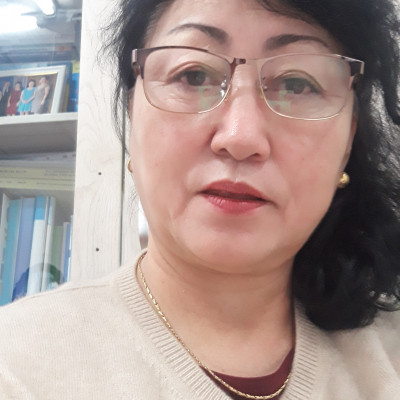Sessions / English for Specific/Academic Purposes
Exploring How to Improve Language Skills in a Language for Specific Purposes Course #2748
The importance of courses on languages for specific purposes has gained more attention in foreign language departments. On the one hand, these classes have been shown to provide students with benefits that go beyond learning a foreign language, such as increasing students’ motivation and critical thinking. On the other hand, not only students, but the community as a whole benefit from these classes, as students are better prepared for their work they will have to do later on in a foreign language (for a review, Brown & Lee, 2015). For example, a doctor who has learned English for Medical Professionals can attend both English- and other language-speaking patients. However, not many departments are able to include such classes into their curriculums. Either they lack professionals versed into teaching such courses, they do not have enough time to implement them in an already full curriculum, or they do not have the monetary resources to hire the appropriate instructors (Macedo, 2019). This study explores the possibility of offering the same benefits as those gained through courses on languages for specific purposes when teaching a traditional foreign language class. Specifically, this study explains how a Spanish advanced debate class (proposed to help students reach an advance knowledge of speaking in Spanish) included materials traditionally found in a Spanish for the Science class (e.g., vocabulary activity or texts). Students gained in vocabulary, grammatical structures associated with the field of science and were ready to deliver a very coherent and solid debate on a difficult topic for them. Not only the benefits were found in how they delivered a speech on a topic related to sciences, but also the benefits transferred to their writing skills, when they were asked to write an argumentative text on this same topic. This presentation will also propose ways on how the techniques and materials traditionally found in a language for specific purposes course can be implemented into any foreign language classroom, specifically English as a foreign language.
REFERENCES Brown, H. D., & Lee, H. (2015). Teaching principles. P. Ed Australia. Macedo, D. (2019). Decolonizing foreign language education. The Misteaching of English and Other Colonial Languages. NY: Routledge.
Teacher Role in Decreasing Student Anxiety in the Language Learning Environment #2750
Foreign Language Anxiety is known to interfere with the acquisition, retention, and production of the target language. Based on a previous study conducted on language learning anxiety, which investigated anxiety-causing activities as well as student beliefs, it was determined that the teacher plays a key role in helping students mitigate foreign/second language anxiety in the classroom. Therefore, the aim of this study was to investigate student beliefs on the role of the teacher in decreasing feelings of anxiety and determine how teachers can better assist students to overcome these anxieties. The findings revealed that a teacher’s relationship with students is a major component of a student’s academic success and emotional well-being. The study conducted followed the qualitative method of research, with participants consisting of 1st and 2nd Year university English majors, in a communicative course.
The Impact of ESP on Student Development #2666
Partner Session (ELTAM)
The field of English for Specific Purposes (ESP) addresses the communicative needs and practices of particular professional or occupational groups. The study examined the potential for influencing student development through the ESP-310, a special English course at the School of Business Administration and Humanities at the Mongolian University of Science and Technology. The study identifies the learning environment, teacher-student relationships, teaching materials, and teaching methods as important factors in student development. In addition, a survey of students who took the course was conducted to consolidate the results. This study shows that business English can have a positive impact on student development.
Paving the Way for Communicative and Professional Development in ESP #3000
The 21st century ESP learner is required to demonstrate a broad range of communicative and professional skills in their chosen field or vocation. In order to facilitate the development of such skills, ESP instructors must be aware of the specific communicative needs of their students, while also taking into account the growing importance of soft skills in the modern workplace. This session will focus on practical ways to engage ESP learners in communication skills and soft skills required to help them succeed in their professional environment. Special attention will be paid to the implementation of these strategies, which include scaffolding techniques, use of authentic and specific materials (including both digital and print) in addition to the integration and use of functional language and topic specific vocabulary.


